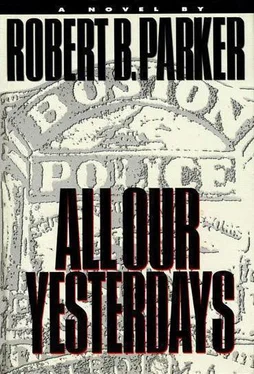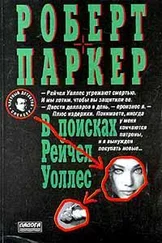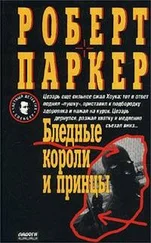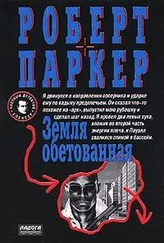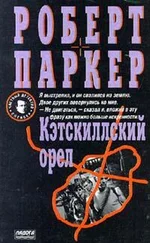John Cooper .
“They are going to send me to Cork,” Conn said.
They were walking on Wilton Terrace. The sun was bright and magpies made shrill noise along the banks of the canal.
“Must you go?” Hadley said.
“Of course.”
“Because they say you must?”
“Yes.”
“Don’t go,” Hadley said.
“I have to. I’m a soldier. I go where I’m sent.”
“But it’s not like a real army,” Hadley said. He was watching the glisten of her lips as she spoke.
“Real enough,” he said. “Will you come with me?”
He could smell the lavender scent of her cologne, close and immediate against a faint background of water scent from the canal.
“To Cork?”
“Yes.”
“I can’t do that.”
“Why not?”
“Why, I’m married. I live here. I have a house.”
“But you love me,” Conn said.
She was wearing a green silk dress under a light coat. Her hair gleamed in the sunshine. White ducks drifted on the surface of the canal.
“Of course I do, but I can’t go traipsing off to Cork with you. Where will we sleep? In a hayloft?”
“We can stay with people in their homes.”
“And while you fight with the Black and Tans, I stay home by the peat fire and do what?”
“Hadley, it’s a war. It’s the best we can do. I can’t leave you.”
“I don’t want you to.”
Conn held both her upper arms with his hands.
“Come with me. It’s the only way.”
She raised her hands and pushed at him.
“Conn, you’re squeezing too hard. It hurts.”
He dropped his hands.
“It’ll be an adventure, girl. It’ll be us, always together, in the countryside, making love every night in a different place.”
Hadley shook her head.
“Stay here, darling, with me, in Dublin.”
“I can’t stay in Dublin, Hadley. I’m too hot. I was one of the gunmen Bloody Sunday. I killed a Secret Service officer named John Cooper.”
Across the canal an old woman had come to feed stale bread to the ducks. They glided toward her rapidly, making a ripple of V’s in their wake.
“You were one of them?”
“Yes.”
“And now you have to run.”
“I’m transferred, to Cork. To fight there.”
They sat together on one of the green wooden benches along the canal. Several ducks banked in toward them hopefully, and, ignored, cruised back toward the center of the canal.
“I can’t go with you, Conn. Accept that. I can’t. I have a husband, a home. I am the spoiled daughter of rich Bostonians. I can’t traipse around the bogs of Ireland, like a camp follower, while my lover fights a guerrilla war.”
Conn felt as if the air around them had no oxygen. He heard his own voice, as if it were someone else’s, remote from him in time and space, filtered by distance.
“Then I’ll desert,” the voice said.
Hadley’s eyes widened and she seemed to rock backwards slightly, as if to catch her balance.
“Desert? And do what?”
“Doesn’t matter,” Conn said. “We’ll go somewhere, anywhere you wish. We’ll stay here or go to America, we’ll be together.”
“Hiding?” she said.
“Not in America,” Conn said. She was appalled by the wildness of his eyes, and the frantic intensity of it. She felt as if soon it would wash over her and she would disappear. “We could live anywhere in America, or France, or Australia. Wherever you’d like, and I’d work.”
“What would you do, Conn? What do you know how to do? You’re a gunman.”
“I’d do something and we’d be together.”
“And the cause? The oath you took?” Hadley was searching with a feeling of increasing desperation for something to stop him with. His need was luminous and tangible. It frightened her. She had lost control of this adventure.
“Fuck the cause,” Conn said. “Fuck the oath. Fuck the world. Only you matter, Hadley. Only you. I would give up everything for you... I will... I have.”
She stood. She could taste something very much like panic in the back of her throat.
“No,” she said. “No. No. No.”
“Yes,” Conn said and the word hissed out like venting steam. “Yes. I love you, and, Goddammit, Hadley, you love me.”
He stood facing her, barely inches between them, not touching her. She backed away a step. She seemed exhausted.
“Not enough,” she said in a small flat voice. And backed up another step, and then another, and then turned, and began to run along the canal toward the pleasantly arched little bridge where Baggot Street crossed.
He didn’t chase her. But he called after her without regard for who might hear.
“You can’t run from me, Hadley. I’ll make you love me enough.”
She continued running clumsily in her high-heeled shoes, holding her skirts clear, crying as she ran.
“I’ll make you, Hadley. I will not give you up.”
And then she had scrambled up the little rise to Baggot Street and across, and he couldn’t see her anymore.
She lived in a four-story red-brick town house with a bright blue door on the north side of Merrion Square. The bricks were the color of cheap rouge, put on early and worn too long. There was a damp chill in the air, and the sky was low and gray. Thin rain fell lightly, and the smell of coal fires drifted fragilely among the wet leaves in the square.
He stood against the low iron fence that ringed the square and watched her door. He paid no attention to the rain, or the cold. If he felt it at all it didn’t register. He saw the curtains move once in one of the front windows, as if someone were peeping out. He stayed where he was, his guns holstered and dry under his mackintosh, his gaze nearly hypnotic on the house. There was no wind to drive the rain. It fell straight down, without force. The streets gleamed with it. The bright blue door opened and Hadley came out wearing a dark blue woolen coat, with a stand-up collar. The coat was buttoned up to the throat. On the top step she opened a black umbrella, and got under it, and walked across the street to where he was standing.
“I can’t have you standing out here like some milk calf in the rail,” she said to him. “One of the servants has already mentioned it. My husband will notice, or someone will tell him. What in hell are you doing?”
“Waiting for you.”
“Waiting for me to do what?”
“If I stood here, I knew you’d come out.”
“All right, I’m out. What do you want?”
“I want you,” Conn said. His voice was very soft, and nearly uninflected. He was saying things he’d imagined and rehearsed. It was as if he were talking to himself.
“Goddamn you, Conn Sheridan. You can’t have me. You did have me. It was exciting. You are good at sex and fun to be with. You were a lark that got out of hand. Now you don’t have me. It’s over. Let it go. Get back to killing people, again, for the Republic.”
“I love you,” Conn said.
“You’ll get over it,” Hadley said. “I’ll get over it.”
She kept the umbrella sheltered close to her head, so that as they talked they were faceless. She looked at his chest. He stared down at the unyielding fabric of the black umbrella.
“I will never get over it,” Conn said, spacing the words carefully.
“You’ll have to,” she said.
“I won’t.”
They were silent then in the hushed sound of the rain. A bicycle hissed by, its rider pedaling carefully on the slick street.
“I won’t,” Conn said again.
“Well, I will,” Hadley said, and turned away under her dark umbrella and walked back across the street to her house.
He didn’t move. She didn’t look back. The rain was very fine, he noticed. It made everything gleam. The blue door seemed a brighter blue. And the small rain down does fall , he thought, and wondered where he’d read that. He felt solid in his stillness, like a frozen boulder across the street from her blue door. There was not even panic in him anymore, only resolve, which grew as time passed, and seemed to fill him like ballast.
Читать дальше
